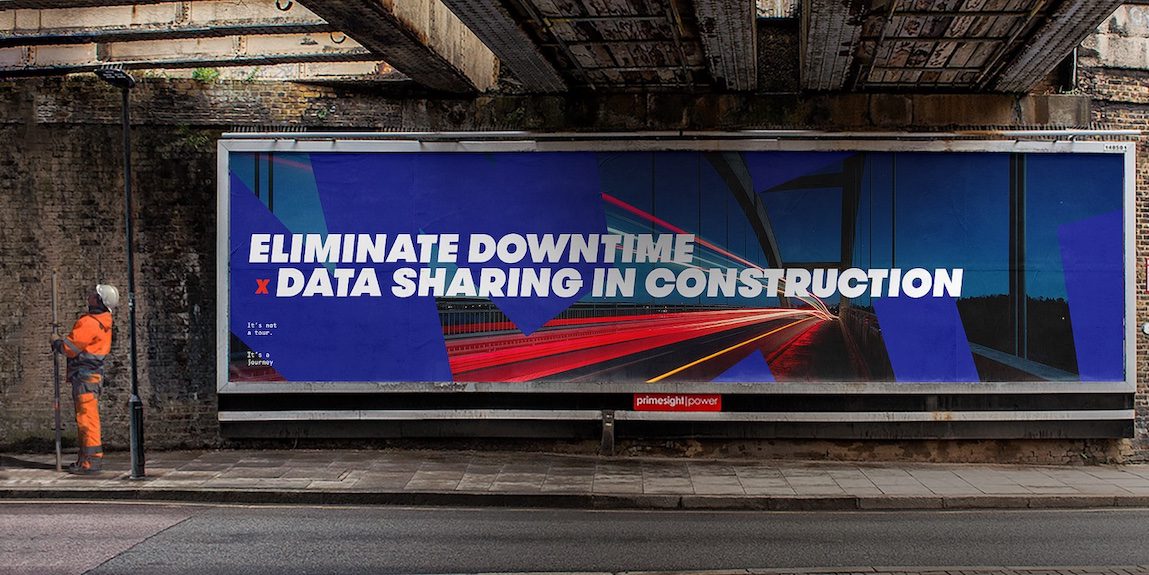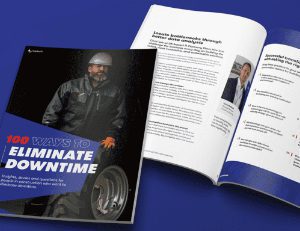

Throughout last year’s events in Europe and the US, the most pervasive topic was ‘data sharing and standardization’. Right now, as we set off, it is time for us to take a very big step and solve the challenges preventing data sharing. We need to do this together, as a community.
Within too many organisations there is resistance to change, whether that is organisational, business process, or simply ‘we don’t do that here.’ Across single companies or the wider industry, the fear of the unknown throws up challenges to progress and increased efficiency. Partnerships and data sharing are where the seeds of increased growth develop, however, they need to quickly demonstrate economic potential in order to gain traction within organisations. In these respects, construction can learn from the experiences of other industries, and channel that knowledge into positive action.

For the past 18-months, Trackunit and other members of the Eliminate Downtime Committee have been hosting events and spreading awareness of this important movement within the construction industry. We quickly learned that collaboration, shared ideas and the data that drives them provides a more complete picture of the state of the construction ecosystem as well as its current direction of travel.
The first 12-months of sharing of ideas, challenges and building relationships, led to the recent publication of the Eliminate Downtime white book – ‘100 Ways to Eliminate Downtime.’ This substantial research was published just as Covid-19 went from a regional problem to a full-blown global pandemic. During lockdown, we worked with customers and partners to pilot the Downtime Index, an open-access platform, which provided machine data-based analysis of OHV activity in Europe and the US. Insights were given on ‘Covid-19 impact on construction’ and the portal was a benefit to a wide audience during a difficult period where live industry data was difficult to gather. This cooperative action whilst the first wave of coronavirus was at its height drew parallels with other industries and illustrates that competitors often make effective partners.
In the early 1970’s, as airline usage expanded with package holidays, airlines were creating individual ticketing systems to keep pace with the dynamic growth in passenger numbers. Each company had its variation of identical systems for indistinguishable applications, but which didn’t allow interconnection between systems. They were creating information silos that were effective barriers to efficiency, in the belief that sharing would benefit competitors. Towards the end of the 1980s Air France, SAS, Iberia and Lufthansa joined forces to create Amadeus. Since then, it has become the standard for how most airlines create, share and track ticketing information. Working together with competitors was the route to better information, reduced downtime and higher levels of customer satisfaction.

In the field of healthcare, it is now widely understood that to achieve the full potential of precision treatments for cancer patients depends on sharing patients’ genomic and molecular data and clinical information. Although great strides have taken place, including the Genomic Data Commons, ORIEN, and CancerLinQ to create an open environment to facilitate data sharing among clinicians and researchers, patients’ health data remains trapped in silos spread across a fragmented cancer ecosystem. The leaders in this field of research believe the solution to this obstacle is to bring trusted third-party research and support organisations together in a coordinated effort to directly engage cancer patients in data sharing.
These examples of the expansion of collaboration outside the interests of a single hospital, airline or national association provide an unambiguous demonstration of how our industry needs to come together to agree and implement opportunities that will support new developments.
Higher success rates can be achieved when standards-led, shared anonymised data from competing sources is used to solve global problems.
The feedback we received from our much smaller Downtime Index pilot underpins our conviction that gathering, analysing and sharing data across the construction value-chain can help transform our industry and provide pathways to radical improvements.
The current pandemic has not been beaten yet and, as we now also confront a global economic slowdown, it remains crucial for our industry to collectively focus on a shared approach that will create the open architecture that construction data and communications standards can be developed from. This is not to say that every organisation has to surrender its valuable supplier, customer, employee, and process data. As we see from the examples given, competing organisations can work together to find new solutions and applications that meet individual organisations’ needs and maintain their competitiveness in the wider market.
The Next Chapter – Co-creating a blueprint for data-sharing
The Eliminate Downtime Committee has commenced the process to co-create a blueprint for data-sharing across the construction value-chain. We have already begun discussions with our partners, which will initiate round tables and hackathons, involving committee members and invited guests from across the regions. We believe these will provide the groundwork and theoretical prototyping to undertake wider field research. From here, the committee will validate and define the blueprint document, which will be shared across the industry. If you are interested taking part, I’d like you to consider the following questions, as a starting point for involvement, and then contact us for more information on an event in your region:

As Eliminate Downtime migrates to the next chapter, we will examine the key themes of transparency coupled with a sharing approach from OEM design and manufacture, through distribution, sales and rental, use and support of not simply the machines but anonymous operator data that contribute to the complete construction site picture. Our industry generates huge amounts of information across many systems and we have the opportunity to treat it with the same industrial efficiency as within the engineering, financial and media fields.
Come and join us on the next steps towards a more productive, safer and sustainable construction landscape. By sharing data, we all have the chance to experience greater success as the rising economic tide lifts our corporate vessels together.
Read more about the Eliminate Downtime Journey and explore more insights and ideas in the white book.

Never miss an insight. We’ll email you when new articles are published on this topic.

